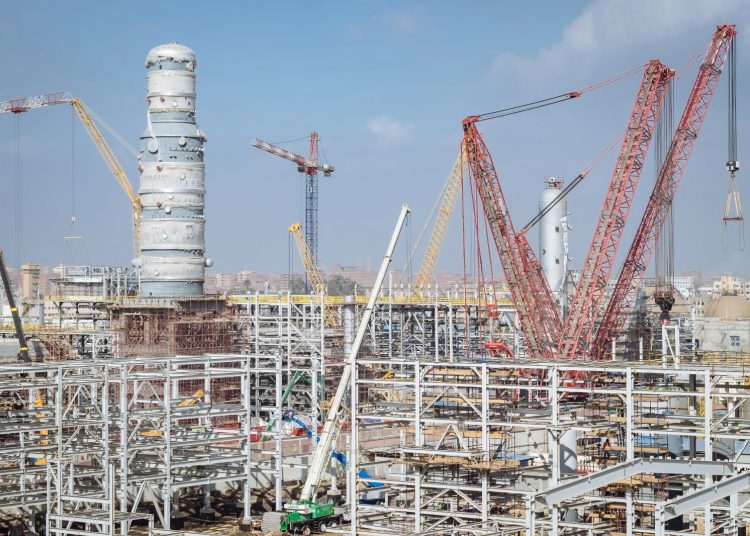Many Egyptian companies operating in different industries participated in the 2nd International Manufacturing Convention & Exhibition (IMCE) on October 28-30.
The IMCE, organised by the Federation of Egyptian Industries and held under patronage of President Abdel Fattah El Sisi, is the largest event of its kind.
This year’s event witnessed broad international attendance, including senior officials of the Egyptian government, investors, representatives from the Joint Arab Chambers of Industry and Commerce, as well as businessmen, heads of industrial chambers, and representatives from the banking, economic, and various industries.
The event aimed to support economic empowerment, attract new manufacturers from across the nation, and align with the industry plan to optimise the country’s capabilities. Furthermore, it was meant to enhance investment opportunities and facilitate dialogue sessions addressing the challenges and opportunities within the industry, according to a cabinet statement.
The government has taken many steps in recent years for the development and localisation of industry.
According to the ministry of trade and industry, seventeen industrial clusters have been established in 15 governorates at a total cost of LE10 billion. They specialise in everything from furniture to ready-made garments, plastics, food processing, engineering, chemical industries, and building materials. Licensed factories can be rented, making life easier for young entrepreneurs who may not have the capital to buy their own facilities. Government bodies have contributed to services to these factories by establishing specialised centres for knowledge transfer, training and technical support.
“The establishment of these clusters is part of government efforts to facilitate investment and promote local industries. They save the investor’s time and effort as the state has carried out all the necessary approvals for the investor to bring the machines and start working directly on the project,” Yomn El Hamaki, professor of Economics at Ain Shames University, told The Egyptian Gazette.
“They are crucial since they contribute to the integration of the informal economy into the formal one, supporting small industries and creating thousands of job opportunities, especially for young people. Had not been for such complexes, shops could have set up on agricultural land or in inappropriate places such as the basements of housing units,” she added.
Hamaki said the newly-established industrial clusters in Upper Egypt have the potential to reduce regional disparities in economic opportunity.
“These facilities are one of the ways in which local components of industries can be deepened, avoiding imports wherever local alternatives are available,” she said.
In addition to clustersdedicated to SMEs, Egypt is also seeing a leap forward in its industrial cities.
Within the last eight years, the state has established new industrial cities, including the Leather City in Al-Rubiki, the new Furniture City in Damietta, the Marble City in Galala and Medicine City in the Khanka region.
“Specialised industrial cities contribute to rebuilding and developing the Egyptian economy. They help to identify the problems facing each industrial sector, and what they need in order to develop,” Rashad Abdo, an economic expert, said.
“They also help in assessing the energy and workforce needed for each industry, the waste produced and how to dispose of it safely, and the internal-trade arrangements and exhibitions needed for products. Industrial cities also result in the creation of residential complexes for employees and increased competitiveness domestically and externally,” he added.
In order to stimulate investment in the industrial sector, the government has issued a number of laws — the most prominent of which is the Law to Facilitate Licensing Procedures and its Executive Regulations, the New Investment Law, the Small, Medium and Micro Enterprise Development Law, as well as the amendments to the Law on Protection of Competition and Prevention of Monopolistic Practices.
Among the strides that the government has been making to improve the business climate in Egypt is the introduction of the Golden License.
In accordance with Article 20 of Investment Law No. 72 of 2017, the aim of the Golden License is to facilitate and attract investment in strategic national projects between the private and public sectors. This license provides the investor with a single approval that encompasses the establishment, operation, and management of projects, including the necessary building and land allocation permits.






Discussion about this post